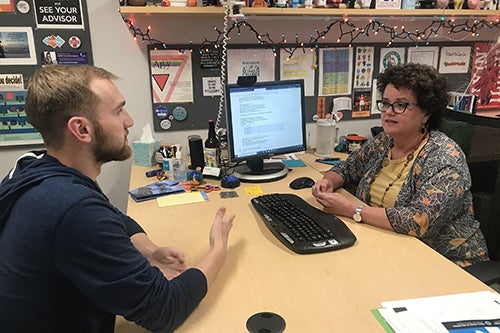
It’s that time of year to register for classes again. Although registering for your classes can seem stressful, it’s exciting to choose course topics that involve your interests. With each new semester, you’re able to start over with new classes that will allow you to explore your passion and become innovative within your studies. Plan early so you can stay on top of your schedule, lock in the core classes you need, as well as, consider the infinite number of electives available to you.
This week, we have asked three advisors from the College of LAS for tips they have for spring registration and what they would like their students to do before coming to their appointments.
Jennifer Brandyberry, advisor for the School of Molecular and Cellular Biology:
- Make your appointment a few weeks in advance. Some advisors’ schedules quickly fill up!
- Biology students can meet with any biology advisor since we do not assign advisors.
- If you can’t keep your appointment, please call or email us.
- Familiarize yourself with your major’s requirements by looking at your DARS.
- Make a list of questions that you’d like to ask.
Kelli Halfman, advisor for the Department of Communication:
- Check Self-Service for any holds that will prevent you from registering!
- Run a degree audit to determine your remaining requirements.
- Browse through Course Explorer in advance for classes you may be interested in taking.
- Take advantage of the Plan Ahead feature in Self-Service after your advising appointment.
Billy Vermillion, advisor for the Department of Psychology:
- Explore courses in different departments, take a look at general education options, and take a look at "special topics" courses that might be of interest to you.
- Talk to other students about courses they are taking and ask questions. This will help you decide if a course is right for you and let you know what to expect.